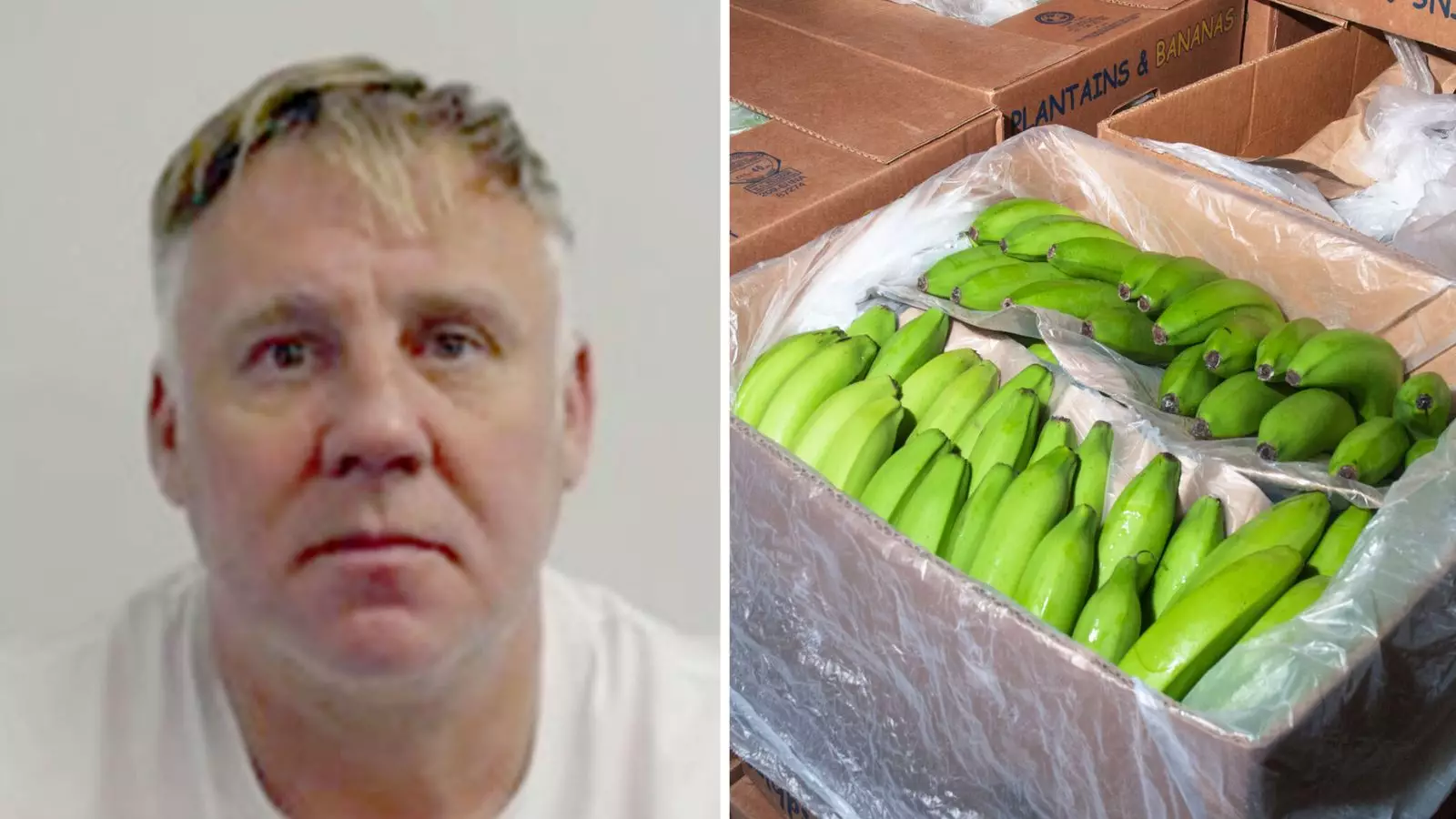In late 2020, the United Kingdom’s law enforcement agencies dealt a significant blow to organized crime as Jamie Stevenson, notorious for his involvement in large-scale drug trafficking, was sentenced to 20 years in prison for orchestrating an intricate plot that aimed to smuggle a staggering nearly a tonne of cocaine into Scotland. Known across the underworld by the chilling moniker “Iceman,” Stevenson’s criminal saga offers a glimpse into the lengths to which individuals will go to facilitate the illegal drug trade, and the consequences that such actions entail.
Stevenson’s scheme involved a shipment of nearly 1,000 kilograms of cocaine cleverly concealed in a cargo of bananas from Ecuador, destined for a fruit merchant in Glasgow. The operation, dubbed “Operation Pepperoni,” was a calculated effort by Stevenson and his accomplices to exploit international trade to facilitate their nefarious undertakings. The cocaine, once intercepted, was estimated to hold a potential street value of approximately £100 million, a staggering figure indicative of the scale of his operation. Yet, this was merely the tip of the iceberg in a lifetime riddled with criminal ventures.
The operation that ultimately led to Stevenson’s downfall involved various law enforcement entities, notably Police Scotland and the National Crime Agency (NCA). Their joint efforts signified an aggressive and coordinated response to organized crime in the UK, as the two agencies formed the Organised Crime Partnership. This partnership was further empowered by the overarching covert initiative known as Operation Venetic, which arose from the infiltration of the EncroChat communication platform. This innovative approach allowed police to gather evidence against numerous criminals, resulting in hundreds of arrests and dismantling numerous criminal networks.
Stevenson’s criminal activities did not start and end with the cocaine smuggling plot. He also had ties to the production and distribution of etizolam, a drug often misrepresented as a therapeutic agent but known on the streets as a kind of “street valium.” This multifaceted involvement in organized crime laid a foundation for his long-standing reputation in the criminal underworld, reminiscent of iconic television dramas that center around organized crime.
Despite having fled the country following a police investigation that revealed his link to a suspected etizolam pill factory in Kent, Stevenson’s evasion was short-lived. His arrest during a jog in the Netherlands marked a defining moment for law enforcement—a testament to their relentless pursuit of justice. The high-profile nature of this case reflects a broader trend in law enforcement, wherein agencies leverage international cooperation to address crime that transcends borders.
Following his extradition back to the UK, Stevenson was faced with the rigorous legal system. He pled guilty to charges that encompassed orchestrating the drug importation and his persistent involvement in organized crime, adding to a lengthy criminal history that includes previous convictions for money laundering. This history of criminality paints a picture of a seasoned criminal for whom the drug trade was not merely a transaction—rather, it represented a lifetime’s pursuit of power and profit.
The consequences of Stevenson’s actions reverberate beyond his immediate convictions. Accomplices such as Paul Bowes, who dealt in the production and distribution of etizolam alongside Stevenson, also faced justice, receiving a six-year sentence. The repercussions extended to other individuals linked to the network, resulting in multiple sentences ranging from three to seven years for various serious drug offenses. Each of these sentences serves as a crucial step in dismantling a broader framework of drug-related crime, but also highlights the pervasive nature of the issue within society.
As Stevenson and his co-defendants now serve their sentences, their case sheds light on the relentless and ever-evolving battle against organized crime. The efforts of law enforcement agencies to intercept such plots and bring offenders to justice reflect a commitment to curbing the influence of drug trafficking on communities across the UK. Through these decisive actions, the message is clear: those who orchestrate the vile trade of illicit drugs will eventually face the consequences of their actions, no matter how far they run.


Leave a Reply